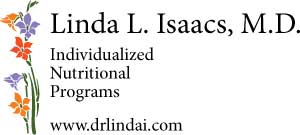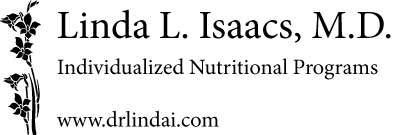Understanding
Linda L. Isaacs, M.D.
“Wisdom is supreme; therefore get wisdom. Though it cost you all you have, get understanding.” Proverbs 4:7
Some people tell me that they have always had an awareness of the presence of God in their lives and in the world. I am not one of those people. As a lover of mathematics and science, for many years I was an agnostic, needing more data to decide whether God exists. I came to believe in the resurrection of Jesus by the mark He made on history; for me, maintaining my faith in the face of life’s obstacles and griefs has been more an intellectual discipline than an emotional one.
I studied out the word “understanding” in the Bible because I wanted to grow in my own understanding of God and His word. The writer of Proverbs obviously felt it was important beyond all else. In this article, I will discuss why understanding is so important, what gets in the way of it, how we can get it, and how it can help in our lives.
Why is understanding so important?
“Listen then to what the parable of the sower means: When anyone hears the message about the kingdom and does not understand it, the evil one comes and snatches away what was sown in his heart. This is the seed sown along the path. The one who received the seed that fell on rocky places is the man who hears the word and at once receives it with joy. But since he has no root, he lasts only a short time. When trouble or persecution comes because of the word, he quickly falls away. The one who received the seed that fell among the thorns is the man who hears the word, but the worries of this life and the deceitfulness of wealth choke it, making it unfruitful. But the one who received the seed that fell on good soil is the man who hears the word and understands it. He produces a crop, yielding a hundred, sixty or thirty times what was sown.” Matthew 13:18-23
In the Parable of the Sower, the man who hears and understands the word is the fruitful one. The fate of the one who does not understand is one we do not wish to share. The rocky soil and the thorny soil are in between the two extremes, possibly partial understanding. The seed that falls on rocky soil also comes to a bad end, while the seed in thorny soil has an ambiguous fate in this parable. However, in Hebrews 6:8 we find more information: “But land that produces thorns and thistles is worthless and is in danger of being cursed. In the end it will be burned.”
Full understanding, then, is what we want, but we may recognize ourselves in the rocky soil or the thorny soil as life’s struggles make us want to give up or be half-hearted. On a more hopeful note, to continue the analogy, what does a farmer do with rocky or thorny soil? The farmer gets to work, digging up the rocks, pulling out the thorns, doing what needs to happen to produce a crop. In the same way, we can work on the soil of our heart to get rid of rocks and thorns. If we stop caring for the soil of our hearts, the thorns may start to invade; then it is time to get to work again!
What gets in the way of understanding?
“This is why I speak to them in parables: ‘Though seeing, they do not see; though hearing, they do not understand.’ In them is fulfilled the prophecy of Isaiah: ‘You will be ever hearing but never understanding; you will be ever seeing but never perceiving. For this people’s heart has become calloused; they hardly hear with their ears, and they have closed their eyes. Otherwise they might see with their eyes, hear with their ears, understand with their hearts and turn, and I would heal them.’” Matthew 13:13-15
Here, just before explaining the Parable of the Sower, Jesus described how the people have chosen not to see and hear, how their hearts have become calloused. What purpose does a callus serve? A callus on our toe protects us from the pain of a tight shoe. A callus on our heart protects us from emotional pain; pain from sins we have committed, pain from sins of others against us. Anger, sadness, fear, guilt, all of them can cause pain, and we can choose not to see or hear to avoid that pain. The root issue is deceit—choosing not to see or hear reality, choosing instead to become numb. But God is real; when we block out reality, we block out the cross and the resurrection, the love and the power of God.
God gives a promise with this verse: if we see with our eyes, hear with our ears, understand with our hearts, and turn, He will heal us. The process can be painful, because the callus is being removed. But in my life, the emotional healing has been and continues to be very real.
How can we gain understanding?
“My son, if you accept my words and store up my commands within you, turning your ear to wisdom and applying your heart to understanding, and if you call out for insight and cry aloud for understanding, and if you look for it as silver and search for it as for hidden treasure, then you will understand the fear of the LORD and find the knowledge of God. For the LORD gives wisdom, and from his mouth come knowledge and understanding. … Then you will understand what is right and just and fair—every good path. For wisdom will enter your heart, and knowledge will be pleasant to your soul. Discretion will protect you, and understanding will guard you.” Proverbs 2:1-6; 9-11.
In this Proverb, the Bible tells us that prayer and earnest study of God’s word can give us understanding. This path may not be completely smooth, though, because understanding the fear of God is not a comfortable thing! Throughout the Bible, it is clear that those who saw God face-to-face were awestruck: see Job 42:1-6, Isaiah 6, Ezekiel 1:28, Revelation 1:17. In another passage, the Israelites in the desert made a bad choice:
“When the people saw the thunder and lightning and heard the trumpet and saw the mountain in smoke, they trembled with fear. The stayed at a distance and said to Moses, ‘Speak to us yourself and we will listen. But do not have God speak to us or we will die.’ Moses said to the people, ‘Do not be afraid. God has come to test you, so that the fear of God will be with you to keep you from sinning.’ The people remained at a distance, while Moses approached the thick darkness where God was.” Exodus 20:18-21
The Israelites chose to stay at a distance instead of seeking God out. We do the same when we choose to stay with our misconceptions of God rather than striving to see Him for who He is, by listening to His Word and seeing His actions in our lives.
What else does the Bible say about how to gain understanding?
- Choose to come to God: “Do not be like the horse or the mule, which have no understanding but must be controlled by bit and bridle or they will not come to you.” Psalm 32:9
- Pray for God’s help: “Then he [Jesus] opened their minds so they could understand the Scriptures.” Luke 24:45
- Put the Word into practice: “I have more understanding than the elders, for I obey your precepts.” Psalm 119:100
- Listen and ask questions: “After three days they found him in the temple courts, sitting among the teachers, listening to them and asking them questions. Everyone who heard him was amazed at his understanding and his answers.” Luke 2:46-47
How does it help us relate to others?
“A fool finds no pleasure in understanding but delights in airing his own opinions.” Proverbs 18:2
When I first encountered this Scripture I had no trouble thinking of others who should read it but I did not see how it applied to me, because I am not very talkative. Then I realized that I air my own opinions all the time—in my thoughts.
We find no pleasure in understanding because sometimes understanding another can be painful, especially when we hear things we would rather not hear. And we can also be held back by laziness. Listening and asking questions is hard, but jumping to conclusions is easy. We cannot read minds; if out of the overflow of the heart the mouth speaks, then to truly understand someone, we must listen to what they say.
“And we urge you, brothers, warn those who are idle, encourage the timid, help the weak, be patient with everyone.” 1 Thessalonians 5:14
Idleness, timidity and weakness can produce the same actions, but call for very different treatment. Warning the timid or encouraging the idle is not going to be helpful for anyone, so if we do not take the time to listen before passing judgment, we risk missing the mark and even harming others.
Conclusion
“Do not be anxious about anything, but in everything, by prayer and petition, with thanksgiving, present your requests to God. And the peace of God, which transcends all understanding, will guard your hearts and your minds in Christ Jesus.” Philippians 4:6-7
Despite all our efforts, there will be things that we cannot understand until we are one with Christ in eternity. But prayer can grant us a peace that transcends understanding. As the Apostle Paul makes clear, developing understanding is a lifelong journey:
“What is more, I consider everything a loss compared to the surpassing greatness of knowing Christ Jesus my Lord, for whose sake I have lost all things. I consider them rubbish, that I may gain Christ and be found in him, not having a righteousness of my own that comes from the law, but that which is through faith in Christ—the righteousness that comes from God and is by faith. I want to know Christ and the power of his resurrection and the fellowship of sharing in his sufferings, becoming like him in his death, and so, somehow, to attain to the resurrection from the dead. Not that I have already obtained all this, or have already been made perfect, but I press on to take hold of that for which Christ Jesus took hold of me. Brothers, I do not consider myself yet to have taken hold of it. But one thing I do: Forgetting what is behind and straining toward what is ahead, I press on toward the goal to win the prize for which God has called me heavenward in Christ Jesus. All of us who are mature should take such a view of things. And if on some point you think differently, that too God will make clear to you. Only let us live up to what we have already attained.” Philippians 3:8-16
Scripture taken from the HOLY BIBLE, NEW INTERNATIONAL VERSION Copyright © 1973, 1978, 1984 International Bible Society. Used by permission of Zondervan Bible Publishers.



